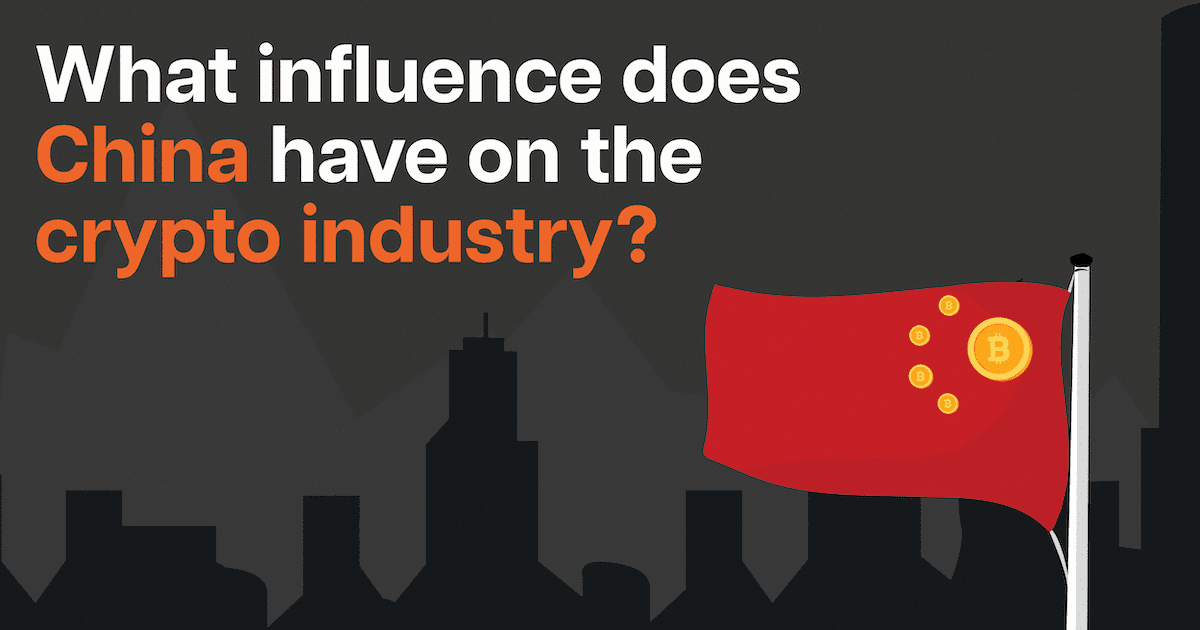China has always had a strange relationship with cryptocurrencies. While the government has repeatedly banned exchanges from transacting in such coins, it also does not change the fact that millions of people have been continuing to trade digital assets. Beyond this, China also has not fully banned Bitcoin mining, though it appears to slowly be taking steps to root it out.
A recent series of government measures have once again introduced a regulatory chill over the crypto ecosystem. In one fell swoop, following a ban on financial institutions and payment companies from providing services related to cryptocurrency transactions, Bitcoin’s price saw a price correction of almost 50%. Other coins such as Ether and LINK fell along with this correction as well.
Whatever it is, it is undeniable that China has a huge influence on the crypto industry. In this article, we’ll take a deep dive into why that seems to be the case.
By the way, if you already see the true potential in blockchain technologies, the future is here. You can start investing today with Nebeus.
Crypto as a political statement
Individuals all over the world tend to associate cryptocurrencies with astounding levels of profits. While that is true, there is an additional layer to cryptocurrencies that makes holding this asset class so intoxicating. Simply put, crypto itself is also a movement – away from the power and oversight of a central authority to a decentralized system governed and inhabited by the people. At the center of the narrative is a struggle between the older and more established institutions and returning power to the people. Thus, it is easy to see why crypto can be seen as a political statement.
China has made its stance on crypto clear and has made a political statement of sorts. Since 2017, the central government in Beijing has been engaging in crackdowns on various aspects of the crypto ecosystem in China. These have included the country’s ban on Initial Coin Offerings (ICOs) in 2017, along with bans on cryptocurrency trading platforms from converting FIAT money into cryptocurrencies and vice versa. Attempts to regulate crypto came to a head again with the recent global bitcoin bull run, with the government releasing an industry directive against crypto and tightening regulations further.
This almost indiscriminate attitude towards banning these currencies has sparked dissatisfaction from its people – why should such activities be regulated so heavily? For these people, it is a matter of personal choice and freedom. These are rights that should not be curtailed.
Yet, in spite of this, crypto persists in China in two significant areas – mining and the adoption of blockchain beyond crypto. However, with the way things are currently going, one wonders how much longer that might persist.
China: No longer the largest country for mining?
Two-thirds of the world’s bitcoin mining capabilities are located in China. The country accounts for about 65% of the world’s mining activities. For the unfamiliar, mining refers to a process of using computational power to process crypto transactions in exchange for rewards in Bitcoin. China’s swathes of land resources, easy access to hardware, and cheap electricity make it a prime location to carry out such activities. So it hardly comes as a surprise that many view the country as the world’s Bitcoin mining center.
Yet, many predict that China’s central position as a Bitcoin mining giant is waning. This is especially noticeable in the recent regulatory pressures, as mentioned above, and the new pressures placed on heavy energy use. While China has essentially turned a blind eye to such mining practices, the government has recently issued orders for various mining sites to shut down. These include provinces such as Inner Mongolia and Xinjiang. These mining operations are being forced to shut down in favor of a more environmentally friendly global outlook.
In the meantime, miners are currently looking for ways around this new set of regulations. Some are looking at making their operations covert, while others opt to up and leave entirely by moving their operations overseas.
What’s next: will China still be a future blockchain hub?
While China has engaged in these crackdowns, it has nonetheless tried to champion and leverage the technology underlying Bitcoin and cryptocurrencies – blockchain technologies. These could prove useful for the nation and the companies in it. Ledger technologies can assist in a range of things, from effectively tracking supply chains and shipments to authenticating real estate purchases.
While this may seem counterintuitive at first, China’s model fits in with an often less discussed aspect of blockchain – the permissioned ledger.
Typically, there are two types of blockchains: permissionless and permissioned blockchains. The former is what tends to be used in the cryptocurrency ecosystem, which helps give it its public, decentralized and transparent nature. On the other hand, the latter is only operated and managed by a small group of stakeholders, with a far lower degree of decentralization.
China has already begun work on these permissioned ledgers. For example, last year, a government-backed blockchain infrastructure network, known as the ‘Blockchain-Based Service Network’ (‘BSN’) was developed. This is essentially a shared information infrastructure that projects can utilize, so programmers will not have to create a framework from scratch. But, more significantly, it was built as part of China’s goal to craft a set of industry standards for blockchain in the country.
How this will all play out remains to be seen. Nonetheless, it is heartening to hear that crypto’s underlying technology has not been unjustly banned.
Conclusion
It is clear that China has an impact on the crypto industry. From affecting global markets and prices to its interactions with various stakeholders in the space, it is evident that whatever stance it takes will be significant.
A divide is rapidly emerging between countries that wish to help facilitate the digital revolution and those that are still justifiably concerned about it. Regulation has long been a tool to express these views, and it is only hoped that whatever attitudes countries take in the end, it will be balanced.
If you want more control over your investments get a Zero Risk loan with Nebeus.










